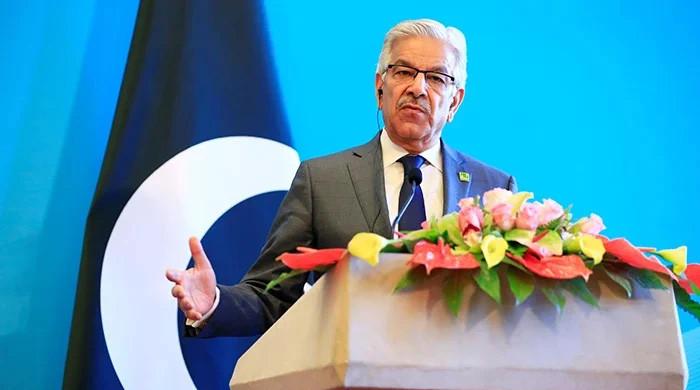SDGs Academy distributes awards among youth working on climate change
Aneeqa Bashir was recognised for her work to save the green heritage of Pakistan
September 13, 2023
The SDGs Academy distributed awards among young participants who have contributed to the betterment of climate with their innovative creative and workable solutions at the National Youth Policy Dialogue.
The dialogue was held in collaboration with the United Nations Development Programme, COMSATS University and the International Human Rights Commission.
Weather extremes and climate change are directly affecting humanity globally. Last year, Pakistan was hit by severe floods and before that, the deadly heat wave of Sindh claimed thousands of lives in Pakistan.
To counter this menace of climate change the government and private sector along with non-profit organisations are working on the issue.
In this context, the dialogue was one of the endeavours made by the private sector alongside NGOs working on curbing the factors affecting our climate and environment.
Young students of schools and colleges participated in the event from all over Pakistan and Gilgit Baltistan. Youngsters came up with innovative, workable and creative ideas to make the country green and clean.
One of the students, Aneeqa Bashir was recognised for her work to save the green heritage of Pakistan. Bashir worked on the documentation of 50- and 100-year-old trees by marking and tagging them as national green heritage.
Bashir also runs a website to create awareness about saving green heritage under the name Agreenerpakistan.org and projectbanyantrees.com.
In her upcoming project, Aneeqa is working on water waste management and water pollution issues in collaboration with a local bank.
An Air Quality Life Index (AQLI) report, issued by an agency working under the University of Chicago, mentioned that 98% of Pakistanis are breathing air carrying deadly particulate pollution. It is the second cause of death after heart disease among the citizens of Pakistan. Moreover, throat and lung cancer are linked to particulate pollution.
Experts think that it is high time that the world should tackle climate change. Old and depreciated transport, industrial and agriculture waste and gasses, increasing residential schemes on green fertile lands and cutting forest and mountain to build hotels and residential projects is causing havoc for our environment.
In Pakistan, with a few health resources it is impossible to manage increasing health issues relating to climate change and environmental pollution.











